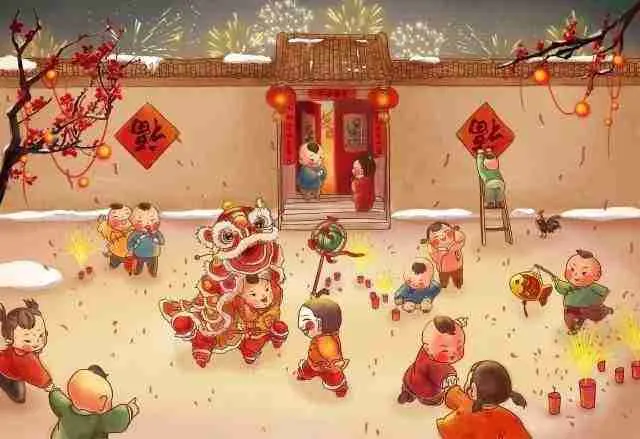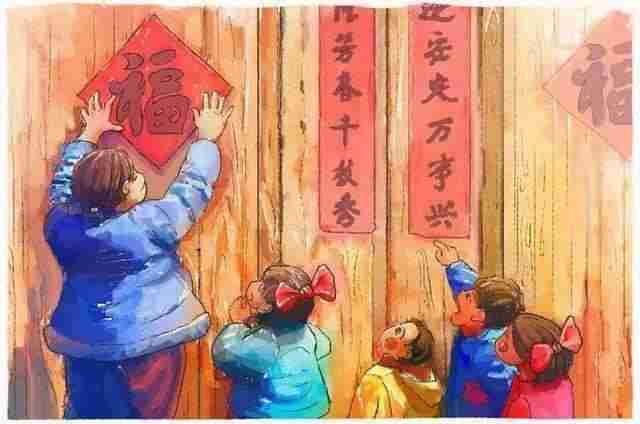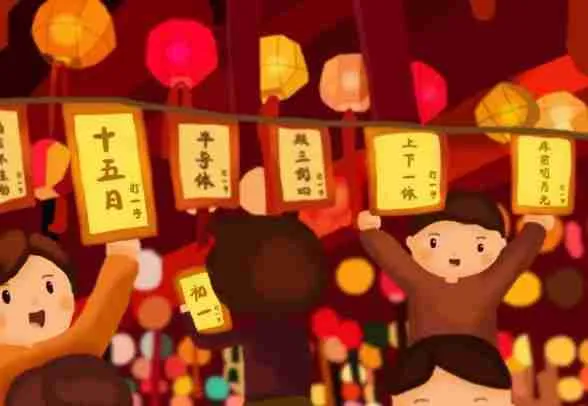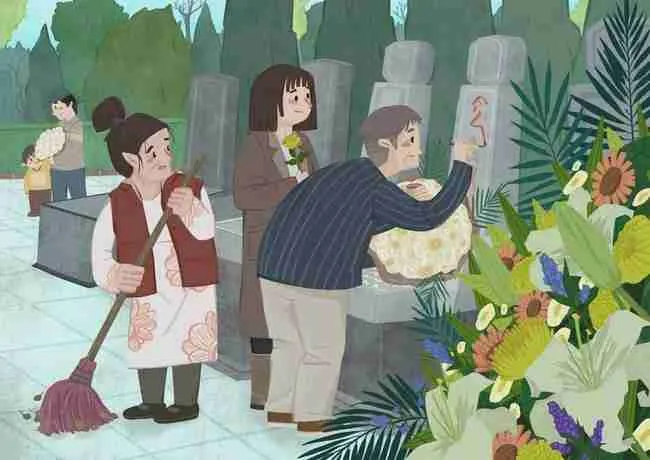If you are planning to travel to China, you may want to carve some time out of your rather busy itinerary to experience their festivities because, more than anything else, the festivals give you the real Chinese experience. But China is known for its many and often long festivals, all celebrating important events in the Chinese culture. So, which festivals should you know about and what are the festivals all about?
Chinese New Year Eve

First, and biggest Chinese festival is Chinese New Year’s Eve. This is a celebration that takes place the day before the Chinese New Year, and as expected or just like the rest of the New Year’s Eve the rest of the world celebrates, the New Year’s Eve festival is regarded as the reunion day for all Chinese families. The festival and the associated festivities have evolved a lot over the years, and it is believed to be a celebration that dates back more than 3500 years.
The festival takes place on the last day of the 12th lunar year, and it marks the end of the year. The New Year’s Eve celebration is followed by the Spring Festival or the Chinese New Year festival, which is considered the most important festival by the Chinese people. This year, the Chinese New Year is on 1st February 2022.
Spring festivals

The Spring Festival or the Chinese New Year is one of China’s biggest and also the most elaborate celebrations. The Spring Festival symbolizes and honors the family unit while also honoring the past and the present generations. The festival gets its name from the fact that this celebration kicks off at the start of spring. It is also called the Lunar New Year, and it is the Grandest of China’s holidays, lasting a total of 7days.
This annual event is the most colorful festival during which there are endless activities that are the hallmark of the festival, and these include making dumplings, setting off the firecrackers and loud fireworks, setting off the iconic red lanterns, dragon dances, parades, massive banquets, and many other exuberant celebrations that are marked all around the world.
In the Chinese Calendar for 2022 is the Year of the Tiger, which is associated with bravery, strength, and exorcising evil spirits. And China’s public holiday to celebrate this festival runs from 31st January to 6th February.
Lantern Festival

The Lantern Festival is a celebration that marks the end of the Chinese New Year, meaning it comes immediately after the Spring Festival. The Lantern Festival is celebrated on the 15th day of the 1st month or the lunisolar year.
During the Lantern Festival night, streets across China are loudly and colorfully decorated with some of the most colorful lanterns that often have riddles scribbled on them. Sweet rice balls or Tangyuan are common, and people set off the fireworks while watching the dragon, as well as the lion dances.
Qingming Festival

Also known as the Tomb Sweeping Day of the Pure Brightness Festival, Qingming Festival is a special kind of celebration that is meant to honor the souls of the departed. It is actually a somber holiday during which people visit and clean/sweep the tombs of the departed as a way of showing respect to the ancestors.
The festival takes place on either April 4th or 5th, but there is a public holiday from April 3rd – April 5th to mark the festival.
Dragon Boat Festival
Slotted for June 3rd, the dragon boat festival or Duanwu Festival is one of the Chinese folk festivals that take place on the 5th day of the 5th month in the Chinese calendar. The festival commemorates the death of a Chinese Poet and minister called Qu Yuan while also celebrating his contributions to classical poetry and his patriotism, things that made him a national hero.
The celebrations involve dragon boat racing and other health-related customs. Sticky rice dumplings are quite common during these celebrations.
Qixi Festival
Also called the Double Seventh Festival or Chinese Valentine’s Day, the Qixi festival celebrates the romantic legend about an ox herd and a weaver girl. The festival takes place on the 7th day of the 7th month (Chinese Lunar Month), or August 4th, 2022, but it’s not recognized as a public holiday.
Zhongyuan Festival
The Zhongyuan festival is also known as the Hungry Ghost Festival, which is celebrated in both the Yulanpen for Buddhist and Taoist religions. It is a special sacrificial ceremony for the dead people and ghosts, especially the errant ghosts of the land. It is celebrated on the 15th day during the 7th lunar month or the 14th day in Southern China.
Performing many of the festival’s ceremonies is important as it helps to protect the living from the wrath of the ghosts. Food is prepared thrice daily, families place ancestral tablets on the table, and there is also the burning of incense.
Mid-Autumn Festival
This festival, scheduled for September 10th or the 15th day of the Lunar month’s eighth month, is also known as the Moon (Mooncake) Festival, and it is a traditional festival practiced in mainland China.
The festival marks the reunion time for families, and it is akin to Thanksgiving in the West. Chinese people get a 3-day holiday to celebrate the festival as it is considered to be China’s second-most important festival after the Chinese New Year. During the festivities, there are large gatherings for dinners, lighting paper lanterns, worshipping of the moon, and, as expected, eating mooncakes, among others.
Double Ninth Festival
Also known as the Chongyang Festival, the Double Ninth Festival is celebrated on the 9th day of the 9th month of the lunar month. It is also called the Senior Citizen’s Festival, and it is an ancient memorial festival, which is also the day that families get to visit their ancestors’ graves and pay their respects to them. During the festival, people also climb mountains, drink chrysanthemum tea or wine, and eat Chongyang cake.
Winter Solstice
The Winter Solstice Festival is also called the Dongzhi festival, and it is a traditional Chinese festival that takes place on the 20th or the 21st of December when the nights are the longest ad the days the shortest in the northern hemisphere.
Laba Festival
The Laba Festival is celebrated during the 8th day of the last month on the Chinese calendar is more than 3,000 years old, and it is marked by people giving sacrifices to their ancestors while praying to the heavens and the earth for a good harvest, as well as good luck for the family. It is marked by the Laba Congee eating festival that involves eating porridge and different types of foods like beans, rice, meat, curd, dried nuts, etc.
Long Tai Tou
Long Tai Tou, also known as the Spring Plowing Festival or Spring Dragon Festival, is a traditional folk festival celebrated on the second day of the second lunar month each year. “Long” refers to the Eastern Azure Dragon, one of the twenty-eight lunar mansions. At the beginning of each year’s mid-spring month (in the direction of the Eastern horizon), the “Longjiaoxing” star rises from the horizon, hence the name “Long Tai Tou”.
Customs: In folklore, there are many customs associated with the second day of the second lunar month, most of which are named after the “dragon”! For example, on this day, people get haircuts, which is called “shaving dragon’s head”. Eating pig heads is called “eating dragon meat”. There are also customs such as dotting dragon eyes, raising dragon heads, dancing with dragon lanterns, and rowing dragon boats, etc.
Xiaonian
Xiaonian, also known as the “Little New Year,” is a traditional Chinese festival that falls on a different date in different regions, usually a few days before the Lunar New Year. In the early and middle periods of the Qing Dynasty, the Kitchen God was worshipped on the 24th day of the twelfth lunar month, and this tradition continued at least until the Qianlong period.
Customs: Eating sugar figurines is one of the customs during Xiaonian, which marks the beginning of the festive season leading up to the Spring Festival. It symbolizes the hope that the Kitchen God will report good things to heaven and keep the household safe. Another custom is cleaning the house, also known as “sweeping the dust,” which represents the desire to ward off evil and bring in good fortune. Eating rice cakes and dumplings is also a common practice.
all the traditional Chinese holidays list
The first month of the lunar calendar:
The following holidays are calculated according to the lunar calendar, also known as the Xia calendar or the Yin calendar:
1st day of the first lunar month – Spring Festival, also known as New Year’s Day. Legend has it that it is the birthday of the Taoist deity Yuanshi Tianzun and the Buddhist deity Maitreya.
2nd day of the first lunar month – Day of the Dog
3rd day of the first lunar month – Day of the Pig
4th day of the first lunar month – Day of the Sheep
5th day of the first lunar month – Day of the Ox, also known as “Breaking Five,” opening of markets, and the birthday of the five-way wealth deities in mythology
6th day of the first lunar month – Day of the Horse, also known as “Sending Away Poverty” Day
7th day of the first lunar month – Day of Man, also known as the “Human Victory Festival,” and “Sending Away the God of Fire” Day
8th day of the first lunar month – Day of the Valley, the birthday of the Yama in Taoism, and the “Eight Immortals” Day
9th day of the first lunar month – Day of Heaven, celebrated as the “Nine Emperor Gods Festival,” and the birthday of the Jade Emperor in Taoism
10th day of the first lunar month – Day of Earth, also known as “Stone Birthday” (a stone-worshipping ritual)
12th day of the first lunar month – Day of Fire, traditionally celebrated as the day when mice get married, and people eat fried soybeans (to represent mice eyes), light up fireworks, and ward off diseases
13th day of the first lunar month – Day of (Lighting) Lanterns, also known as the day when Guan Gong ascended to heaven
15th day of the first lunar month – Lantern Festival, also known as “Zhengyue Festival” and “Shangyuan Festival” in Taoism, and the birthday of the heavenly officials in Chinese mythology
18th day of the first lunar month – Falling Lanterns Day
Lunar February
February 1st, Zhonghe Festival, the birthday of the Sun.
February 2nd, Spring Dragon Festival (Head Ya), also known as the Dragon Raising its Head Festival or Qinglong Festival, the birthday of the Buddhist monk Ji Gong.
February 3rd, the birthday of the mythological deity WenchangdiJun.
February 12th, the Flower Festival (also known as the Flower God Festival) which is sometimes celebrated on February 15th. It is the birthday of the Hundred Flowers, the Flower God (flower season).
February 15th, the birthday of the Taoist goddess of the nine heavens Xuan Nü and the Taoist god Laojun.
February 19th, the birthday of the Buddhist bodhisattva Avalokitesvara.
February 21st, the birthday of the Buddhist bodhisattva Samantabhadra.
Lunar March:
On the third day of the third lunar month, there is the Shangsi Festival, also known as the “Sisters’ Festival,” when young women visit their maternal homes. It is also the birthday of Huangdi, the Yellow Emperor, and Zhenwu, the Emperor of the North Star, in Taoism. According to mythology, it is also the day when the Queen Mother of the West holds her Peach Blossom Festival.
On the fifteenth day of the third lunar month, it is the birthday of General Zhao Gongming in Chinese mythology and the birthday of Taishan Lao Mu in Taoism.
105 or 106 days after the winter solstice, there is the Cold Food Festival, the day before the Tomb Sweeping Day. The exact date varies according to the lunar calendar.
Qingming Festival, one of the 24 solar terms, usually falls between the second half of the second lunar month and the first half of the third lunar month.
Lunar April
April 1st, Worship of the Hail Deity
April 4th, Birth of Manjusri Bodhisattva in Buddhism
April 8th, Bathing the Buddha Festival (Longhua Assembly), Birth of Sakyamuni in Buddhism
April 12th, Birth of the Snake King in Taoism
April 14th, Birthdays of Immortals in Taoism (including Lü Dongbin)
April 18th, Birth of the Divine Physician Hua Tuo
April 28th, Birth of the Divine Farmer (Shennong)
Lunar May
Dragon Boat Festival on the fifth day of May
Lunar June
On the sixth day of June, there are two festivals known as the Clothes Drying Festival and the Sunning Festival. The saying “June sixth, basking in red and green” is associated with these festivals. Another festival on this day is known as Aunt’s Day or “June sixth, please aunt.” In ancient times, there was also a festival called the Tianhui Festival, which means “gift.” Additionally, June 6th is a festival in Buddhist temples known as the Sutra Turning Festival, which involves worshipping the mountain gods.
On June 19th, Guanyin Bodhisattva attained enlightenment in Buddhism.
On June 24th, people celebrate the birthday of Duke Guan, the mythical god of thunder, and the lotus flower.
Lunar July
On the first day of July, worship the sea god.
On the seventh day of July, also known as Qixi Festival, Double Seventh Festival, or Chinese Valentine’s Day.
On the fifteenth day of July, it is the birthday of the Earth God and the Buddhist Ullambana Festival, also known as the Ghost Festival in Confucianism and the Zhongyuan Festival in Taoism.
On the eighteenth day of July, it is the birthday of Xi Wangmu, the Queen Mother of the West, in Taoism.
On the twentieth day of July, it is the birthday of cotton.
On the twenty-third day of July, it is the birthday of Zhuge Liang, also known as the Wuhou Memorial Day.
On the thirtieth day of July, it is the birthday of Ksitigarbha Bodhisattva in Buddhism, also known as the Ksitigarbha Festival.
Lunar August
On the first day of August, the Festival of the Heavenly Doctors.
On the third day of August, the birthday of the Stove God in Taoism.
On the eighth day of August, the mythical Yaochi Gathering.
On the twelfth day of August, the birthday of the Pan Gu King.
On the fifteenth day of August, the Mid-Autumn Festival.
On the twenty-fourth day of August, the birthday of rice.
On the twenty-seventh day of August, the birthday of Confucius.
Lunar September
On the ninth day of September, the Chongyang Festival, also known as the Double Ninth Festival, is the anniversary of Emperor Yuan’s enlightenment.
On September 19th, in Buddhism, Avalokitesvara Bodhisattva became a monk.
Lunar October
On the first day of October, the October Chao, the Cold Clothing Festival, is a festival popular in northern China for worshipping ancestors, also known as the Ghost Festival.
On the fifteenth day of October, the Taoist festival of Lower Yuan, which celebrates the birth of the Water Officer.
Lunar November
Winter Solstice, also known as “Southward Solstice” and “Ya Sui” (second only to New Year’s Day), is one of the 24 solar terms used to determine the lunar calendar and intercalary months. Winter Solstice falls within the eleventh month of the lunar calendar (i.e. earliest on November 1st and latest on November 29th or 30th), and it is a prerequisite for determining the intercalary month. As both solar terms and the Gregorian calendar are based on the solar calendar, the date of the Winter Solstice is relatively fixed on or after December 22nd in the Gregorian calendar.
Lunar December
On the eighth day of the twelfth lunar month, there is the Laba Festival, which commemorates the day when Gautama Buddha attained enlightenment.
On the sixteenth day of the twelfth lunar month, there is the Yearend Feast, a Chinese traditional festival for celebrating the end of the year.
On the twenty-third or twenty-fourth day of the twelfth lunar month, there is the Kitchen God Festival, also known as Xiaonian Festival, which is a time for cleaning and preparing for the upcoming Chinese New Year.
On the twenty-fifth day of the twelfth lunar month, there is the Jade Emperor’s Birthday in Taoism.
On the twenty-ninth or thirtieth day of the twelfth lunar month, there is New Year’s Eve, which is a time for various customs and activities, including offering sacrifices to the well deity, posting Spring Festival couplets, welcoming the god of wealth, having a reunion dinner, and staying up late.